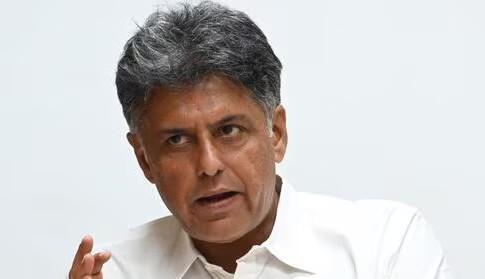
Against Constitution: Tewari on bills to remove jailed PM, CMs
The recent move by the Union Minister Amit Shah to present three bills in Parliament aimed at removing Prime Ministers, Chief Ministers, and Ministers who are facing serious criminal charges has sparked a heated debate in the country. While the government claims that the bills are intended to strengthen democracy and prevent the misuse of power, many opposition leaders, including Congress MP Manish Tewari, have expressed strong reservations about the proposals.
Tewari, a vocal critic of the government’s move, has termed the bills as “against the basic structure of the Constitution”. He has argued that the Indian Constitution is based on the principle of “innocent until proven guilty”, which means that an individual is presumed innocent until they are found guilty by a court of law. According to Tewari, the bills seek to reverse this principle and allow for the removal of an individual from office based on mere allegations of wrongdoing.
Tewari’s concerns are not unfounded. The bills propose to amend the Constitution to allow for the removal of an individual from office if they are facing trial for a serious criminal charge. The bill also proposes to empower the President to remove a Chief Minister or a Minister if they are facing trial for a serious criminal charge. While the government claims that the bills are intended to prevent the misuse of power, many critics argue that they are designed to target political opponents and undermine the independence of the judiciary.
The potential for misuse of state instrumentalities under these bills is enormous. If an individual is removed from office based on mere allegations of wrongdoing, it could create a culture of fear and intimidation, where individuals are afraid to take decisions or speak out against the government. It could also lead to the misuse of power by those in authority, who could use the bills to silence their political opponents or settle personal scores.
Moreover, the bills ignore the fundamental principle of the rule of law, which is that an individual is innocent until they are found guilty by a court of law. The bills seek to reverse this principle and allow for the removal of an individual from office based on mere allegations of wrongdoing. This is a dangerous precedent that could have far-reaching consequences for the country’s democracy.
Tewari’s concerns are not unique to him. Many other opposition leaders, including the Congress party, have expressed similar reservations about the bills. The party has argued that the bills are designed to undermine the independence of the judiciary and the Constitution, and that they are a threat to democracy.
The government, on the other hand, has defended the bills, claiming that they are intended to strengthen democracy and prevent the misuse of power. The government has argued that the bills are necessary to prevent the situation where an individual is facing trial for a serious criminal charge but is allowed to continue in office, which could undermine the faith of the people in the government.
However, this argument is flawed. The Constitution already provides for the removal of an individual from office if they are found guilty of a serious criminal charge. The bills are unnecessary and are designed to target political opponents.
In conclusion, the bills presented by Union Minister Amit Shah to remove Prime Ministers, Chief Ministers, and Ministers who are facing serious criminal charges are a threat to democracy. They are designed to undermine the independence of the judiciary and the Constitution, and could have far-reaching consequences for the country. The government must reconsider its position and prioritize the protection of democracy over its own interests.






